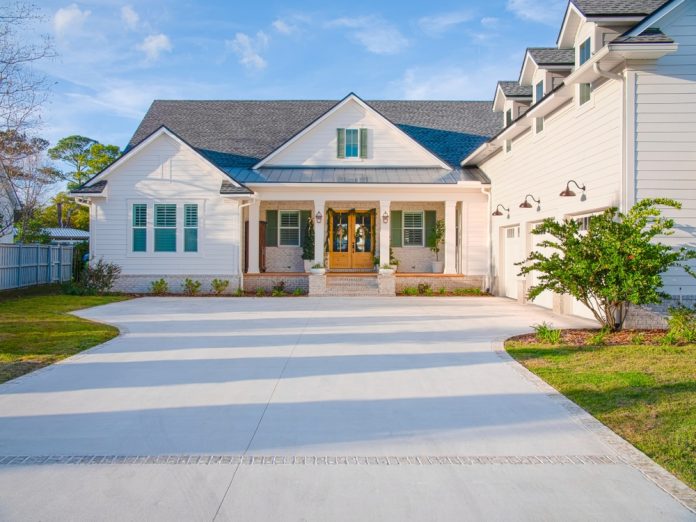If you’ve ever browsed homes online or sat down with a Realtor to talk pricing, you’ve probably heard the term “comp” thrown around. It may sound like insider jargon, but comps are one of the most important tools in real estate. They play a big role in determining whether a home is priced right, and they can make or break a deal for both buyers and sellers.
Understanding comps doesn’t just help you feel more confident—it gives you a serious advantage. Whether you’re making an offer on your dream home or deciding on the right list price for your property, comps act as your roadmap. Let’s pull back the curtain on what comps really are, how they’re used, and why they matter so much in today’s market.
Defining a Comp in Plain English
At its core, a comp is simply a “comparable sale.” It’s a home that has recently sold and is similar to the property you’re interested in buying or selling. Agents and appraisers look at comps to figure out what a fair market value should be. If three similar houses in the same neighborhood sold for around $800,000, that’s a pretty good sign your home is worth about the same amount.
The key word here is similar. A comp should match up closely in things like size, age, style, and location. For instance, if you’re looking at a 1,500-square-foot ranch built in the 1990s, the best comps would also be ranch-style homes with roughly the same square footage and built in the same era. The closer the similarities, the stronger the comparison.
Where people often get tripped up is thinking any house nearby counts as a comp. That’s not the case. A home across town with twice the square footage or major upgrades isn’t really a fair comparison. That’s why working with a Realtor who understands your local market is so important—they know how to sort out the true comps from the misleading ones.
Why Comps Matter for Sellers
If you’re selling your home, comps are your best friend. They give you a realistic picture of what buyers are willing to pay in your area. Overpricing your home based on emotion or what you “need to get” from the sale is one of the fastest ways to scare off potential buyers. On the flip side, underpricing can mean leaving money on the table. Comps help you land on a price that attracts interest and still gives you value.
I’ve seen sellers get attached to a number because a neighbor sold their house for a certain price. But here’s the catch: that neighbor’s house may have had a new kitchen, finished basement, or bigger yard. Without accounting for those differences, you could set your expectations too high. Using comps is about being honest with yourself and looking at the facts.
Comps also give you an edge when it comes time to negotiate. If an offer comes in low, having solid comparable sales to back up your asking price makes it easier to stand your ground. Buyers respect data, and comps provide the data that keeps negotiations fair.
Why Comps Matter for Buyers

On the buyer’s side, comps are equally important. They help you understand whether a home you love is priced fairly. Nobody wants to overpay, and comps give you the evidence you need to make a smart offer. If homes just like the one you’re considering have been selling for $750,000, and the seller is asking $785,000, you know you’ve got some negotiating room.
Comps can also help you move quickly with confidence in a hot market. If you know the going rate for similar homes, you’ll have a better sense of when to come in strong and when to hold back. Without that knowledge, it’s easy to either miss out or pay more than you should.
One of the most practical ways comps come into play for buyers is during the appraisal process. Even if you’re willing to pay over the asking price, your lender might not agree. Appraisers use comps to decide what the home is actually worth. If the appraisal comes in lower than your offer, you could run into financing issues. Knowing the comps ahead of time can help prevent unpleasant surprises.
What Makes a Good Comp
Not all comps are created equal. A strong comp has three main traits: it’s close in location, it’s similar in size and features, and it sold recently. Markets change quickly, so a sale from three years ago won’t carry much weight today. Generally, sales within the past three to six months are considered the most reliable.
Location is another big factor. Even a mile or two can make a big difference depending on your city or town. School districts, neighborhood amenities, and even traffic patterns all affect home values. That’s why the best comps are usually in the same subdivision or very close by.
Finally, condition matters. A home that looks similar on paper may not really be a comp if one has been fully renovated and the other is still stuck in the 1980s. Adjustments can be made, but the closer the condition, the more accurate the comparison will be.
Looking Beyond the Numbers

While comps are essential, they’re not the whole story. Every home is unique, and sometimes the details don’t show up on paper. Maybe a house has an incredible backyard view, or perhaps it sits on a busy corner. Those factors can influence value in ways that comps can’t always capture perfectly.
This is where working with a knowledgeable Realtor makes a huge difference. They’ll know how to interpret the comps and balance them with the real-world factors that affect a home’s value. Data is powerful, but context is everything. A good agent helps you read between the lines.
At the end of the day, comps give you clarity, but they’re just one piece of the puzzle. They set the foundation, and then it’s up to you and your Realtor to layer in market trends, property condition, and personal goals to make the right decision.
FAQs About Comps in Real Estate
How many comps are typically used to price a home?
Most Realtors and appraisers look at three to five strong comps to get a clear picture of a property’s value. Using too few can skew the data, while too many can dilute the accuracy.
Can a home be priced without comps?
It’s possible, but not recommended. Comps are the most reliable way to understand market value. Without them, pricing becomes guesswork, and that can hurt both buyers and sellers.
Do comps affect the appraisal?
Yes, appraisers rely heavily on comps to determine a home’s appraised value. They’ll look at similar recent sales and adjust for differences in size, condition, and location.
What if there aren’t any good comps nearby?
In areas with fewer sales, appraisers and agents may expand the search radius or look back further in time. They’ll also make adjustments for location and timing to keep the comparison as accurate as possible.
Are comps the same as asking prices?
No, comps are based on homes that have already sold, not what sellers are asking. That’s what makes them more reliable—they reflect what buyers were actually willing to pay.




